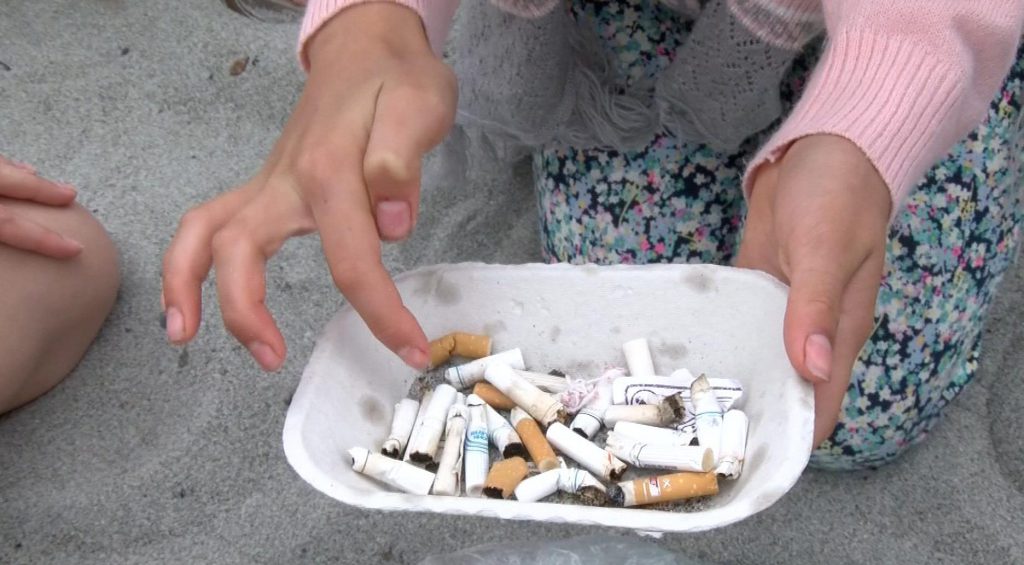
UBC researchers say half of the waste recovered on Victoria and Vancouver shorelines are cigarettes and cigarette filters.
Data analyzed for the research from the Great Canadian Shoreline Cleanup initiative also shows that 80 to 90 per cent of the litter collected was plastic.
Cigarettes, which are also made of plastic, were found along with foam and other plastic pieces, food wrappers and containers.
On Oak Bay’s Willows Beach Thursday, it took a group of four children just five minutes to bear out the study’s results, picking up 26 butts in just a small section of sand.
“Think of all the cigarettes swept out and to think about all the animals that must consume cigarettes every day,” said Maciah Huang, who picked up the garbage along with brother Isiah, and friends Maila Moon Paynter-Repay and Spencer Hunter-Repay.
Researchers say the information could help waste management strategies across B.C., and recommend: seeking regulatory changes for the production and distribution of items commonly found on shorelines, marine pollution awareness campaigns and better waste management infrastructure.
“While volunteer-led conservation efforts like the Great Canadian Shoreline Cleanup are great at removing shoreline litter, more needs to be done to actually reduce the amount of litter that ends up in the water or on the coast,” said UBC master’s student and co-author Vanessa Fladmark.
The results didn’t come as a surprise to Surfrider Foundation Vancouver Island co-chair Gillian Montgomery. The group has been leading shore clean-ups on the Island for years, and consistently finds butts are the most common type of debris gathered.
Montgomery believes smokers often fail to understand both what the butts are made of, and where they go after being flicked to the curb.
“Cigarette butts are entering the ocean through storm drains and they’re extremely harmful to marine life,” she says.
“A lot of people don’t realize but cigarette butts are in fact made out of plastic so it takes decades for them to break down and when they do break down they’re not completely breaking down, they’re actually breaking up into smaller and smaller [microplastic] pieces so they’re posing a huge problem for marine life.
Surfrider launched a campaign called “Hold on to Your Butt” in 2013, distributing cigarette canisters to Victoria businesses at cost, and says so far the program has been a success. The City of Victoria is now studying a municipal program to expand the number of canisters in the core.
A U.S. study notes that Cigarette butts are the most common type of litter on earth, with an estimated amount of 4.5 trillion discarded annually.
The U.S. report goes on to say there are few studies that have addressed the degradation dynamics of whole Cigarette butts in realistic ecological conditions, though studies often sponsored by the tobacco industry say they require several years to degrade completely.





